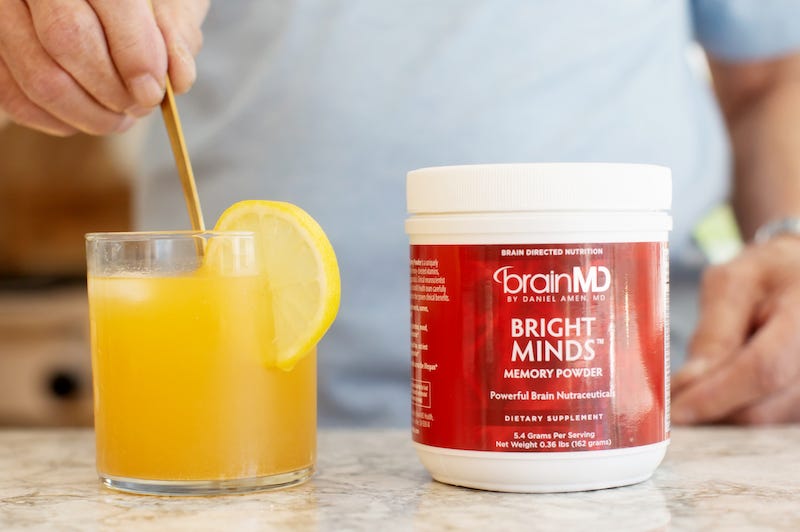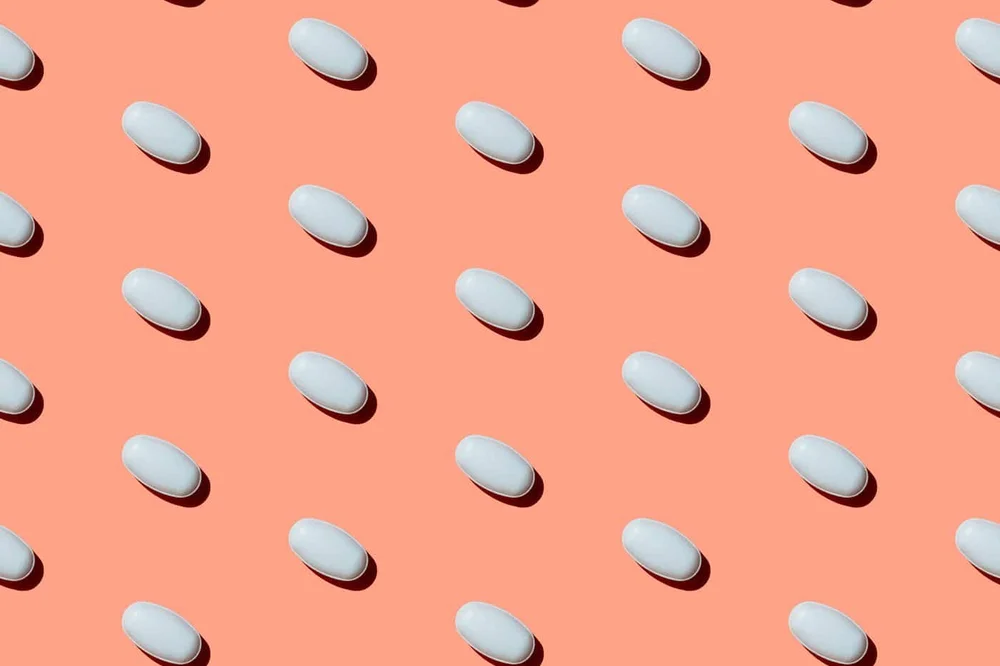Boost Your Brainpower: The Top Clinically Studied Memory Supplements to Take Daily
Medically Reviewed by Dr. Nicole Avena
Do you often forget names, appointments, or where you left your keys?
If so, do you see this as a sign of trouble or just normal memory loss?
Is Memory Loss Normal?
A recent report found that 1 in 9 American adults experience cognitive decline, which includes confusion and memory loss.
While frequent memory lapses or mental fog may be common in your 40s, 50s, and 60s, too often they’re dismissed by medical practitioners as being a normal part of aging.
However, memory problems aren’t normal. They’re a sign of potential trouble and should be taken seriously, regardless of your age.
Since memory loss doesn’t have to be your destiny, early intervention is crucial to long-term prevention.
What Causes Memory Loss?
Long before symptoms develop, your brain may already be deteriorating, years or even decades before you realize it.
Memory decline can be related to a variety of issues, such as:
- Unhealthy lifestyle
- Stress
- Poor circulation
- Lack of exercise
- Being overweight
- Insufficient Nutrition
- Lack of sleep
- Head injuries
Fortunately, it’s possible to avoid or alleviate all these issues. In the presymptomatic stage, when memory problems are less severe, help is likely to be most effective.
That means no matter how you’ve treated your brain in the past, you can improve your memory over time by taking the right steps to improve your brain and overall health.
If you’re experiencing memory loss, even if it seems minor, now is the best time to get serious about the health of your brain.
To help put the brakes on brain decline, here are some practical, natural ways to keep your memory sharp…
Tips to Keep Your Memory Sharp at Any Age
- Get Regular Exercise
Physical activity is one of the best things you can do to keep your memory sharp and your brain and body healthy. Exercise can help boost blood flow, deliver oxygen and other nutrients to your brain, and may increase your levels of dopamine. Walking at a brisk pace can help clear your mind, improve your mood, and burn some calories all at the same time.
- Take a Trip
Traveling helps the brain by exposing it to new faces and places. Learning the landmarks and geographical features of a new area exercises the brain’s visual-spatial abilities and helps stimulate your memory pathways. In addition to breaking up the sameness of your normal routine, taking a trip can provide a whole new set of experiences, some of which may become cherished memories.
- Eat Memory-supporting Foods

Instead of eating foods saturated with refined carbohydrates and sugar, choose lean proteins, healthy fats, and lots of organic fruits and vegetables. Aim for a diet that consists of mostly plant-based foods with some high-quality proteins and healthy fats mixed in.
- Engage In Coordination Activities
Doing coordinated physical activities – like dancing, tennis, or table tennis – can boost activity in the cerebellum. Though it only accounts for 10 percent of the brain’s total volume, the cerebellum contains about 50 percent of the brain’s neurons, and is involved with both physical and thought coordination. Try to work a coordination activity into your daily routine.
- Avoid Toxins
Smoking, along with drug and alcohol abuse, can increase your risk for serious memory issues. Even a glass of beer or wine per day can be harmful to the brain. Research demonstrates that marijuana can negatively affect the hippocampus.
- Adopt New Learning
Set aside some time every day for new learning. Some examples are learning a new language or musical instrument, trying a new kind of dance or other complex physical activity, or taking up a new hobby like chess or painting.
Many maintain that the “use it or lose it” principle applies to the brain. When the brain stops learning it can start fading, so be intentional about learning new things every day.
- Forge Strong Connections
Social connections can significantly affect your brain, mood, memory, and overall well-being. Building and maintaining healthy relationships may help you feel understood and cared for. When you care for others and feel cared for, your brain releases oxytocin, the “bonding” hormone, which can counteract some of the negative effects of stress.
The health habits of the people you spend time with can have a dramatic impact on your own health, so surround yourself with people who are happy, upbeat, kind, and who challenge you to be the best version of yourself.
Dr. Amen’s Favorite Memory Supplements to Take Daily
Our memory supplements are based on the latest science and medical data, and are developed by one of the world’s leading brain-health experts, Dr. Daniel Amen. Here’s a look at some of BrainMD’s best memory supplements…

Brain & Memory Power Boost
Six of the most highly researched, brain-boosting herbs and nutraceuticals join forces in this advanced, best-selling formula to sharpen your memory and support your cognition, mental clarity, and concentration.*
BRIGHT MINDS Memory Powder
BRIGHT MINDS Memory Powder is both a complete multivitamin/multimineral AND a powerful memory supplement powder featuring over 30 vitamins, minerals, amino acids, herbal concentrates, and nutraceuticals.*

NeuroVite Plus Multivitamin
Scientifically formulated with 50+ optimally bioavailable nutrients in their best-utilized and most effective forms, NeuroVite Plus is the only daily multivitamin for men and women that delivers comprehensive brain-boosting benefits.*
Omega-3 Power/Omega-3 Power Squeeze
Highly concentrated fish oil products, Omega-3 Power and Omega-3 Power Squeeze provide 1,600 mg of EPA, DHA and other omega-3s to power your mood, focus, memory, cognition, and heart.*
NeuroPS
This phosphatidylserine supplement features high-potency, soy-free phosphatidylserine (PS) for better memory, concentration, and attention at any age.*
Remember This
Your behavior and habits can either positively or negatively impact how well your brain functions as you get older.
The good news is it’s never too late to take better care of your brain.
Being mentally and physically active, taking some of the best memory supplements, and avoiding unhealthy habits, can help support your memory. Keeping your brain fit is a great way to support cognition and memory throughout your life.
One of the best ways to keep your memory sharp, reduce brain atrophy, and avoid long-term memory problems is to exercise it every day. There will never be a better time to start improving your memory than now, so make your memory a priority today…and every day.
At BrainMD, we’re dedicated to providing the highest purity nutrients to improve your physical health and overall well-being. For more information about our full list of brain healthy supplements, please visit us at BrainMD.
*These statements have not been evaluated by the FDA. This content is for informational purposes only. It is not meant to substitute for medical or healthcare advice from a physician, nor is it intended to diagnose, treat, cure, or prevent any disease. Consult your healthcare provider before beginning a new health regimen.
- This Is What You Need to Know About HBOT
Medically Reviewed by Dr. Nicole Avena - April 22, 2024 - Hormone Changes in Men: How to Know If You Have Low Testosterone! - April 15, 2024
- This Is What You Need to Know About EMDR Therapy! - April 11, 2024







Wish parents and kids would take note of this. So sad to see so much processed food and couch potatoes. Highly recommend Pickleball in addition to other exercise: good for the brain, body, and forming new relationships – inexpensive and a multigenerational activity.